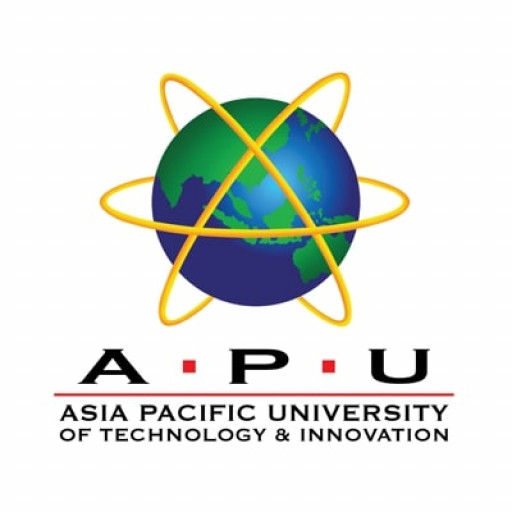Bachelor of Science (Hons) in Information Technology at Asia Pacific University of Technology & Innovation (APU) provides students with a comprehensive and practical education designed to prepare them for a successful career in the rapidly evolving field of information technology. This program is tailored to equip students with core technical knowledge, hands-on skills, and critical thinking abilities necessary to adapt to and influence the digital landscape of today and the future. The curriculum covers a broad spectrum of areas including software development, network systems, database management, cybersecurity, and emerging technologies such as cloud computing and artificial intelligence. Students will engage in innovative projects, laboratory work, and industry placements that foster real-world experience and professional readiness. The program emphasizes industry-relevant skills, cultivating competencies in problem-solving, teamwork, and effective communication, which are vital for success in a competitive global market. Faculty members are experienced professionals and researchers who provide personalized mentorship and guidance. The program also offers opportunities for specialization in areas like Cybersecurity, Data Science, and Software Engineering, allowing students to tailor their education to their career aspirations. APU’s strong industry links and dedicated career services assist students in securing internships and employment upon graduation. Graduates of the program are well-prepared for careers in IT consultancy, software development, network administration, system analysis, and technical management. They are also equipped with entrepreneurial skills to innovate and launch their own tech ventures. By choosing this program, students gain not only academic knowledge but also the practical skills and professional outlook needed to excel in the dynamic and expanding field of Information Technology.
Degree Level 1
Students will learn fundamental skills required by every IT professional, and the basic understanding of the underlying computer system through Computer Architecture, Operating Systems, Networking and Databases. The modules will also help them develop personal and organisational skills, as well as nurture creativity and innovation.
Degree Level 2
A broader range of skills will be learnt, in which students will gain better understanding of frameworks and planning techniques for the strategic management of information systems, programming languages and techniques, and further analysis and design skills. We will further nurture your creativity and innovation as well as independent learning to prepare you for the workplace.
Students will undertake an Internship/Industrial Training for a minimum period of 16 weeks to prepare them for a smooth transition from the classroom to the working environment.
Degree Level 3
You will make use of your previous studies and industrial experience to extend your familiarity in a broad range of information technologies and to refine your personal and professional development. You will enhance your programming skills and move further into the areas of cloud computing and big data. A final year project requires you to investigate and develop a solution to a real-world problem – you will demonstrate your ability to combine technical knowledge, critical thinking and analytical skills to produce a personal achievement portfolio.
- A Pass in STPM with a minimum Grade C (GP 2.0) in any 2 subjects and a Credit in Mathematics at SPM Level or its equivalent; or
- 2 Passes in A-Level and a Credit in Mathematics at SPM/O-Level/IGCSE; or
- 5 Grade B’s in UEC, including Mathematics; or
- Passed a Foundation/Matriculation programme with a minimum CGPA of 2.0, with Credit in Mathematics at SPM/O-Level/IGCSE and equivalentl; or
- Diploma with minimum CGPA of 2.5 and Credit in Mathematics at SPM level; or
- Canadian Pre-University (CPU) with minimum average of 50%; or
- Australian Matriculation (AUSMAT) with minimum average of 60%; or
- South Australian Matriculation Certificate (SAM) with minimum of 60%; or
- International Baccalaureate with minimum 24 marks;
- Victorian Certificate of Education with minimum average of 50%;
- Ontario Secondary School Diploma with minimum average of 50%; or
- A qualification that APU accepts as equivalent to the above.
The qualification and entry requirements for the programmes will be determined based on the "Comparison List of Equivalency of International Qualifications with SPM (O-Levels equivalent) and STPM (A-Levels equivalent)" published by Malaysian Qualifications Agency (MQA).
The (Hons) in Information Technology program at Asia Pacific University of Technology & Innovation offers diverse financing options to support students throughout their studies. The university provides various scholarship opportunities, including merit-based scholarships for high-achieving students, which can significantly reduce the financial burden. Additionally, financial aid programs are available to help students who demonstrate financial need, ensuring that deserving candidates have access to quality education without prohibitive costs. Students can also explore flexible payment plans and installment options, making tuition fees more manageable over the course of their studies. The university collaborates with financial institutions to facilitate student loans with favorable terms, allowing students to finance their education and focus on their academic and professional development. Work-study programs are occasionally available, enabling students to gain practical experience while earning income to support their studies. International students have access to specific scholarship schemes and financial assistance tailored to their needs, ensuring inclusivity and diversity within the campus community. The university regularly updates its funding guidelines and provides dedicated support services to help students identify the most suitable financing options. Overall, financing studies at Asia Pacific University of Technology & Innovation is designed to be accessible, comprehensive, and student-centric, ensuring that financial constraints do not hinder the pursuit of a quality education in Information Technology.
Career Options:
|
|

